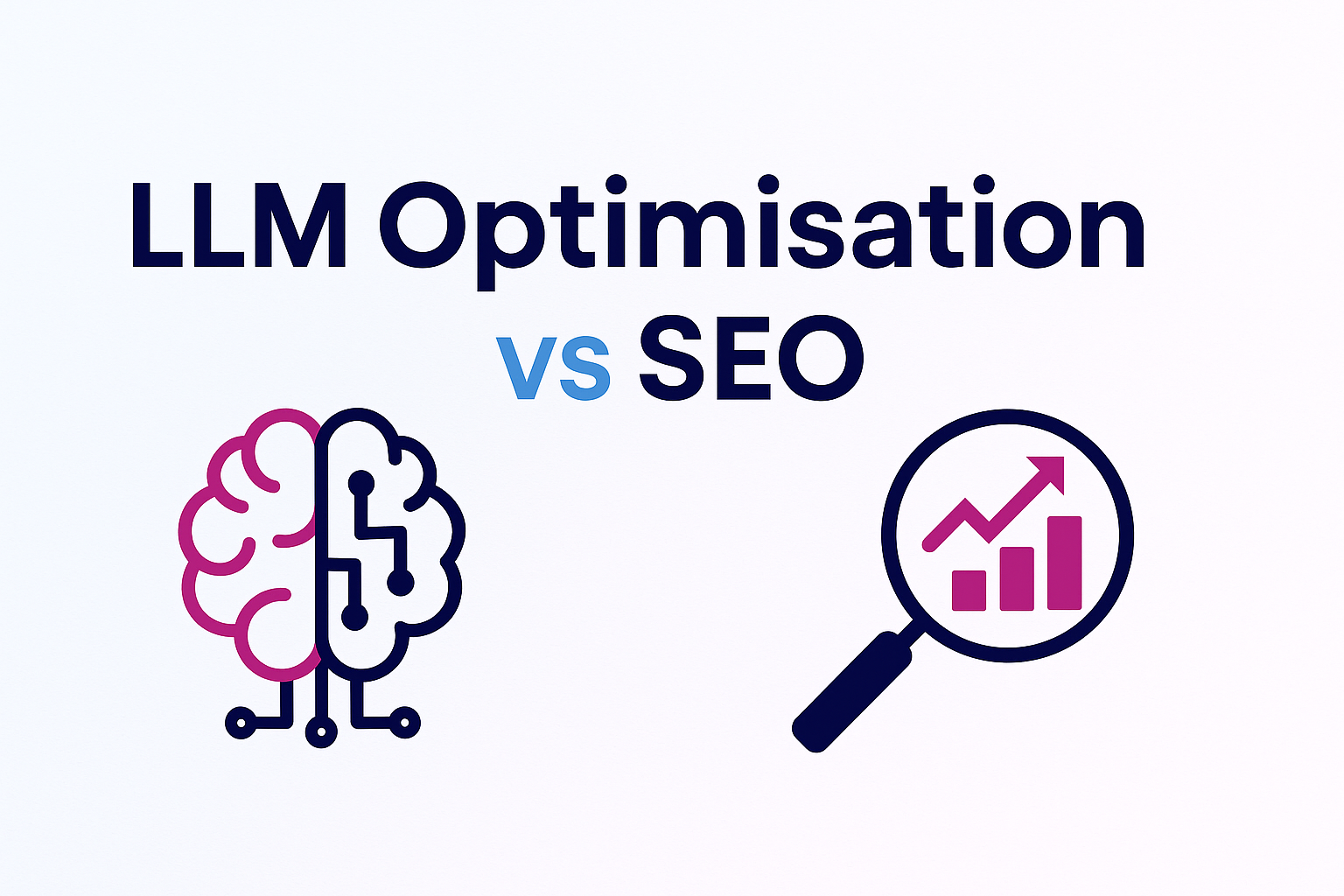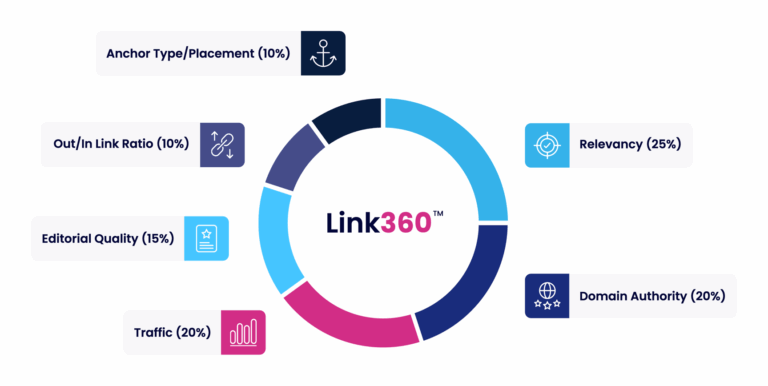
You already know the value of SEO. You’ve done the groundwork, studied the ROI stats and are confident in the difference it can make to business growth. You may have already seen it first-hand bring outstanding results in a previous role. But now you’re seeking approval for SEO budget by a whole new set of stakeholders.
If you’re looking for support in selling SEO internally, read on, because we have all the tips and advice you need to make your business case for SEO, so you can get moving with your organic search marketing campaign.
In this article we’ll cover:
- How to make a business case for SEO
- Anticipating stakeholder concerns and overcoming barriers
- How to calculate the potential value of an SEO campaign
How to make a business case for SEO?
When you’re selling SEO internally to stakeholders, you need to build a persuasive case. Research and data gathering is the place to start.
You’ll need to undertake a thorough audit of the potential value an SEO campaign could bring the business, identifying key metrics and key performance indicators (KPIs) along the way. Your main aim is to highlight the potential impact of SEO on business growth.
Here are the core essentials you’ll need to delve into:
Keyword research
Keyword research uncovers the search terms your target audience is using to find businesses like yours.
Identify relevant keywords that could draw new leads into your business via organic search. There are various tools you can use for this, including Google Keyword Planner, ChatGPT, Google Trends and Ahrefs Webmaster Tools.
A great addition to your business case for SEO will be showing an ROI for individual keywords.
To calculate ROI for the core keywords, you can estimate the potential increase in organic traffic, and how that translates to conversions and revenue. You can do this by considering the monthly search volume of each keyword, the click-through rate (CTR) for top-ranking positions, and your conversion rate. Multiply these metrics by the average order value or lead value to estimate potential revenue. For example, if a keyword has a search volume of 1,000, a CTR of 30% for a top position, and a 5% conversion rate, you could expect 15 new leads or sales from that keyword.
Quick question – how to work out CTR and conversion rate?
CTR and conversion rates vary by industry and search intent, but you can them using either existing data or reliable benchmarks:
CTR – this is the percentage of people who click on your link after seeing it in the search results. A general rule is that pages in the top position of Google receive around 30% of clicks, the second position about 15%, and the third position around 10%.
To calculate an estimated CTR:
- Use Google Search Console to check the CTR of existing pages ranking for specific keywords.
- For new keywords, rely on industry benchmarks or tools like Advanced Web Ranking, which offers CTR averages by position and device.
Conversion rate – This refers to the percentage of visitors who take the desired action (e.g. making a purchase or filling out a form).
To calculate the conversion rate:
- If you have historical data, divide the number of conversions by the total number of visits and multiply by 100. For example, if 100 visitors come to your site and 5 make a purchase, your conversion rate is 5%.
- If you are estimating for a new campaign, use benchmarks based on your industry (most e-commerce sites have conversion rates between 2-4%), or you can use data from Google Analytics to track the conversion rates of similar campaigns.
By combining these metrics, you can estimate the potential traffic from your keywords and calculate how much of that traffic might convert, helping you build a stronger business case for SEO.

Competitor analysis
A key part of building a business case for SEO is analysing your competitors’ strategies. By understanding how they are performing in search and identifying their strengths and weaknesses, you can find opportunities to outperform them.
Start by selecting say 5-10 niche competitors and conducting a content gap analysis. This will help you discover keywords or content that’s driving traffic to their site, but aren’t being used to their full potential on yours.
For example, many businesses start by comparing their competitors’ top-ranking content to identify untapped keyword opportunities.
You can also assess their backlink profiles, looking at where they are getting authoritative links, and review their on-page SEO to find areas where you could optimise more effectively.
By identifying these gaps, you can develop a strategy that not only closes the distance between you and your competitors, but also takes advantage of missed opportunities they may have overlooked.

Website performance
Optimising website performance is essential for successful SEO.
Search engines increasingly prioritise fast-loading, mobile-friendly websites that offer seamless user experiences. To make a strong business case for SEO, start by evaluating your site’s speed, user experience (UX), and mobile responsiveness.
These are all critical factors in both rankings and conversions. A slow or poorly performing site can significantly increase bounce rates and deter potential customers, impacting your bottom line.
Studies have shown that improving page load times and refining the mobile experience can lead to noticeable improvements in conversion rates, so be sure to gather data to this end to help you get approval for your SEO budget.
Also, see if you can find some industry-relevant case studies to show that even small enhancements, such as reducing load times by just a few seconds, can result in a substantial uplift in customer engagement and revenue.
Backlink profile
A robust backlink profile is one of the most significant indicators of a website’s authority and trustworthiness in the eyes of search engines. When building your business case for SEO, it is essential to evaluate both the quality and quantity of your site’s backlinks, as they directly influence rankings.
A range of high-quality backlinks from reputable sources signals to search engines that your site is credible, and worth ranking higher in search results.
Improving your backlink profile following Google best practice can reap significant rewards in terms of visibility and organic traffic. For example, earning backlinks from industry-relevant websites, authoritative blogs, or respected media outlets not only boosts your site’s reputation but can also drive targeted referral traffic.
By demonstrating how targeted efforts in backlink building can help boost your online visibility, you’ll strengthen the argument for investing in SEO as a long-term growth strategy and hopefully have a better chance of gaining approval for SEO budget investment.
By taking the time to gather data like this and personalising it to your industry and business, your job of selling SEO internally will become a lot easier.
Anticipating stakeholder concerns and overcoming barriers
When you’re presenting a business case for SEO, it’s crucial to think ahead about the questions and concerns that stakeholders are likely to bring up.
For many, the main barriers are often around budget justification and understanding the potential return on investment (ROI). To prepare effectively, you must put yourself in their shoes and be ready with data and examples that demonstrate SEO’s tangible benefits.
Stakeholders may question why they should invest significant resources into SEO, or how they can be sure the investment will deliver measurable results.
The key to overcoming these objections is to focus on the long-term value of SEO. Unlike paid ads, which stop delivering the moment you cut the budget, SEO builds value in your website, driving sustainable traffic growth over time.
You can also support your case by providing real-world examples or case studies where SEO has generated impressive ROI for similar businesses.
To further strengthen your argument and help you get approval for your SEO budget, be transparent about the metrics for success and how you’ll track progress.
By clearly laying out how KPIs like organic traffic growth, conversion rates, and ranking improvements will be measured, you can give stakeholders the confidence that their investment is being closely monitored.
Quick tip: be prepared with…
Real-world case studies: Including brief case studies or examples of businesses in your industry that successfully implemented SEO strategies and reaped significant benefits can make your points more relatable and persuasive.
Testimonials or quotes: If possible, adding testimonials from competitors or industry experts about the value of SEO can bolster credibility and resonate with stakeholders.
Counters for common misconceptions about SEO: Addressing and debunking common misconceptions or myths about SEO can help clarify its benefits and reduce resistance from stakeholders.
Visual aids: Infographics or charts that illustrate the correlation between SEO efforts and metrics like traffic growth, conversion rates, or revenue can help make your case more visually appealing and easier to understand.
Actionable steps: Providing a brief outline of actionable steps or a roadmap for implementing an SEO strategy could help stakeholders see how to move forward after the case is made.
Industry benchmarks: Including data or statistics about average ROI for SEO investments in your industry can help stakeholders understand what they might expect and justify the investment.

How to calculate the potential value of an SEO campaign
One of the strongest points you can make when seeking approval for an SEO budget is demonstrating the potential ROI the business could achieve.
Being able to measure the value of an SEO campaign is invaluable, as it provides stakeholders with clear, actionable insights into how their investment could translate into revenue growth.
Figment’s unique SEO ROI calculator takes this a step further by allowing you to estimate the potential value based on various key metrics. By inputting factors such as estimated monthly visitors, average ranking position, conversion rates, and client lifetime value, you can generate a clear picture of the expected monthly revenue from SEO efforts.
This not only highlights the financial impact of investing in SEO, but also helps stakeholders understand the specific areas where improvements can yield the highest returns.
What’s more, the flexibility of the calculator enables you to adjust metrics to see how different scenarios – such as increased traffic or improved conversion rates – could affect overall potential revenue. This dynamic aspect is particularly useful in discussions around selling SEO internally, as it allows stakeholders to visualise the direct benefits of allocating budget towards SEO initiatives, and understand where to focus their improvement efforts.
Ultimately, presenting a well-supported estimate of the ROI can tip the balance in favour of getting the SEO budget approved. By backing your business case for SEO with concrete numbers, you can reassure stakeholders that their investment will yield measurable, long-term benefits for the business.
Need help making a strong business case for SEO? Talk to Figment.
If you’re looking to make a strong business case for SEO and want to know that you’re supported in gaining approval for an SEO budget, help is available.
Figment is an award-winning, top-rated London SEO agency with a proven track record of getting businesses found online and helping them achieve sustainable business growth through well-planned, fully-tailored, best practice strategies.
For support in selling SEO internally, complete with back-up statistics, case studies, metrics, testimonials and competitor and gap analysis, you can rely on our expert team.
To discuss how we can help you get your SEO budget approval over the line, you are welcome to get in touch.




